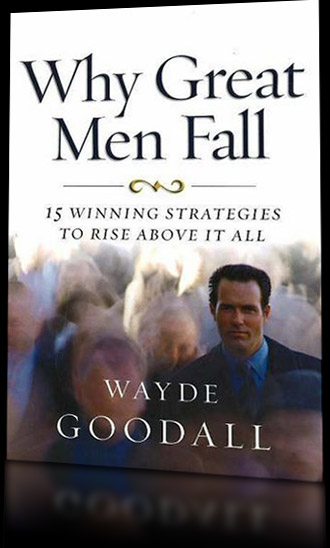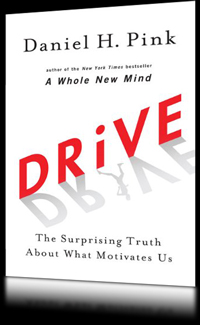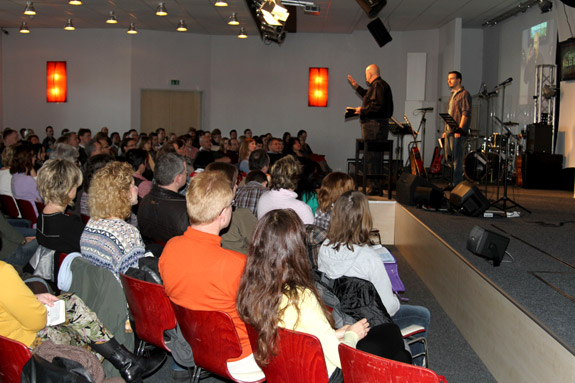 Just out of observation from those that ask for an opportunity to share a struggle, it seems that there are really not that many problems among people. You would think otherwise. Although the stories are different, although the pain is real, you would think that we would be able to wrestle with the commonality and find some answers, but we don't.
Just out of observation from those that ask for an opportunity to share a struggle, it seems that there are really not that many problems among people. You would think otherwise. Although the stories are different, although the pain is real, you would think that we would be able to wrestle with the commonality and find some answers, but we don't.
One of the main roots leading people to lose grip on their situation, one of the main things that leads people to get swallowed up in temptation is the feeling of entitlement. When the rockstar, the sports figure, the politician, or the prominent come to believe they deserve special treatment, or can explain away their behavior due to some extenuating circumstances, it won't be long before some kind of tabloid headline trumpets the stumble for the entire world to see. At the very least, we will find ourselves always unable to get the brass ring we hoped to receive, and in our own perception, things never really work out. We are setting ourselves up for permanent frustration.
- I know I can't afford it, but I have worked hard lately.
- Oh, calories don't count when you are on vacation.
- People in my position are expected to drive a bigger car.
- Since my wife is not affectionate, this website keeps my interest.
Wayde Goodall, in Why Great Men Fall, points out common traits of this malady.
Getting stuck in our own world view. We stop growing, we stop learning, and we no longer need the team.
Being unwilling to change. We think that our way is the only "really right" way.
Thinking we are unfallible. We believe we do everything with excellence and - in the world of executives - we are really the best.
Wayde Goodall, Why Great Men Fall, pg. 21-22
One sentence rings out with clarity. Goodall writes:
Excessive pride will make us unaware of the small failures that are symptoms of the big failure that could destroy us.
The sense of entitlement will convince you that your marriage is worthless. It leads leaders to make stupid, stupid choices. You see it clearly in others, but not really in the mirror. Here is the sad truth: It's destination is never where you want to be.
Just my observation.

As a church grows, so does the necessity of delegated responsibility. As the team grows, the connection to a central, driving vision becomes vague. Additionally, there will be those who are not driven by the vision, who are not necessarily willing to sacrifice for the sake of the noble cause, but are driven by other factors.
Then there are some who are not self-motivated, but take their lead from another. How does everyone stay on mission? What drives people?
In a capitalistic society, personal prosperity and gain is generally the motivating factor. The better the prospect of gain, then generally we are taught to believe that a person will stay motivated. In church world we begin looking for ways to value workers. Do we adopt the carrot-stick approach? Will workers only stay motivated when there is the potential of financial gain? Are bonuses the way to keep interest running high?
Daniel Pink writes some pretty radical and thought-provoking stuff in his latest book, Drive.
... Researchers at Cornell University studies 320 small businesses, half of which granted workers autonomy, the other half relying on top-down direction. The businesses that offered autonomy grew at four times the rate of the control-oriented firms and had one-third the turnover.
Daniel Pink, Drive, pg. 91
Let's make sure that we are on the same page: A worker is worthy of his hire. The point is not to dishonor workers. Keeping anyone poor does not motivate them. Pink is simply stating that people pitch-in, when they buy-in. That comes, when they are invited to bring their talents and creativity to shape the organisation.
A leader shapes the vision and direction, but the entire staff must shape how that can be implemented. When that occurs, then magical things begin to happen.
 In the year 1875 businessmen convinced the showman P.T. Barnum to lend his name and one of the most famous travelling circus’ was born. Ultimately Barnum would merge with Bailey, then later merge with the Ringling Brothers circus and the result was a brand that captured market share. Gross receipts would ultimately top 500 million dollars annually.
In the year 1875 businessmen convinced the showman P.T. Barnum to lend his name and one of the most famous travelling circus’ was born. Ultimately Barnum would merge with Bailey, then later merge with the Ringling Brothers circus and the result was a brand that captured market share. Gross receipts would ultimately top 500 million dollars annually.
The greatest show on earth was so profitable that Mattel bought it in 1971 in a hostile takeover. Mattel paid 50 million dollars.
Then electronics were invented: Playstations. Then Las Vegas hit its stride.
The costs of paying their star talent, the care and feeding of aging animals, travel costs in an oil shortage economy all impacted the bottom line - hard. Negatively.
Ticket sales dropped over the next decade and Mattel would sell their ownership in 1983 back to the original owners, Feld Entertainment, for less than half of what they had originally paid.
So here is the question: Is this the business climate to start any new circus?
In 1984 a group of street performers thought so. Canadian businessmen banded together and in the next 20 years would achieve a level of revenues that took Ringling Brothers & Barnum & Bailey over 100 years to attain. Cirque de Soleil was born.
And all of that in a declining industry.
How? In the business volume: Blue Ocean Strategy, the authors observe:
“Cirque de Soleil did not compete with Ringling Bros. and Barnum & Bailey. Instead it created uncontested new market space that made the competition irrelevant. It appealed to a whole new group of customers: adults and corporate clients prepared to pay a price several times as great as traditional circuses for an unprecedented entertainment experience.”
Four questions guide the business practice and create a new value curve:
- Which of the factors that the industry takes for granted should be eliminated?
- Which factors should be reduced well below the industry’s standard?
- Which factors should be raised well above the industry’s standard?
- Which factors should be created that the industry has never offered?
Church-planters, we should sit up and take notice. When environments change, we do not quit, nor resign. We adapt. Those that do, flourish.
|
|
|
Last week was intense. I have no other way to describe it. Asking God to visit us in a powerful way was met with some pretty intense meetings. Greg Lyons and executive pastor JR arrived from meetings in Pakistan on Friday. Just a couple of hours later they would begin meeting what would eventually be nine presentations with various groups over three days. Passionate question and answer sessions by various age groups indicated that interest runs high. Over the course of the next few months we are asking that God would really indicate to us how we are to take it up a notch. The church body has a strategy that works with friendship evangelism. What we want to know is whether waves of young people can come to Christ. We explore the possibilities and are excited about the potential. Fritz and Petra Geiling will be headed with us to Manila in February in order to consult and analyze what - if anything - is transferable to Europe. Marco Valore is also headed to the Philippines with us - saved just last year, but passionate about assisting others in finding his savior. Could this be our time, our opportunity - the year that Jesus wants to pour out a new awakening? We explore the possibilities and are ready to learn from others. |
Satan is nasty. All the time; consistently. He destroys. He mocks. He accuses. And I don't mean in a Bart Simpson endearing way.
But did you ever stop to think that he pesters God, too? Did you realize that he constantly attempts to convince the Creator that no one really loves Him? Read the first couple chapters of Job and you get to view behind the scenes about what really goes on and it's not pretty. He keeps attempting to inform God that people only show their love and obedience based on goodies. You know, God, the cosmic Pez dispenser. Take away the candy and ... presto, the faithful followers disappear. At least that is what Satan says.
 So God allows suffering.
So God allows suffering.
And you and I may or may not get the full jist of what is going on, but somehow, in some small way, I imagine that God says: See! See! There is a person that does love me, even when the bottom drops out. Even if rewards are not imminent. See!
God does care about your plight. He is broken hearted about man's condition. I read recently where this was recorded: Jesus saw the multitudes and he was moved to compassion - he saw them as beaten, broken and forsaken, as sheep without a shepherd.
My tears are not in vain. Yours are not in vain. It gives God the opportunity to tell Satan that he has no clue; someone really does love Him. And nothing can seperate us from Him. Nothing will drive a wedge between God and His child. Not even Satan.
Page 47 of 52
